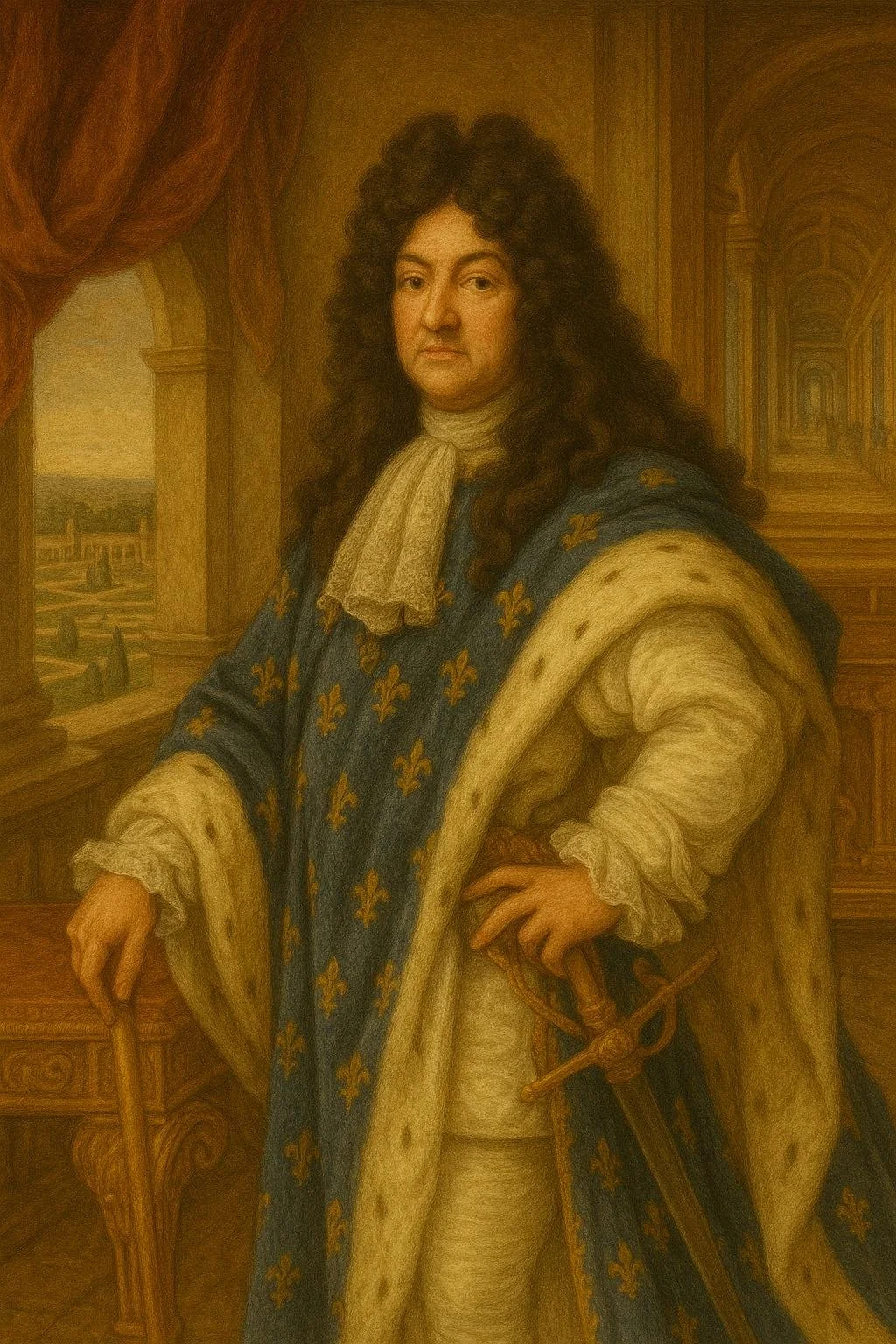Lesson 2: New Views on Government (Enlightenment and Revolution)
👑 Kings and Queens Try Enlightenment
The Enlightenment made many people ask: Should kings have all the power? Even some rulers listened to these new ideas.
But not all kings agreed.
📖 Story: Louis XIV of France, called the “Sun King”, ruled for 72 years. He said, “I am the state,” meaning he had all the power. He lived in a huge palace called Versailles, with gold, gardens, and parties. Louis believed in absolute monarchy — that the king was like God on Earth. He did not want to share power with the people.
Later kings saw the problems of this kind of rule and tried to change.
📖 In Prussia, King Frederick the Great gave religious freedom and helped farmers. In Austria, Maria Theresa and Joseph II opened schools and gave more rights to workers.
These rulers were called Enlightened Monarchs. They still had power, but they wanted to help the people more.
🗳️ New Ideas About Democracy
Some Enlightenment thinkers wanted very different governments.
John Locke said people have natural rights: life, liberty, and property. He believed that people give power to the government — not God or kings.
📖 Story: Locke’s ideas were shocking at the time. Kings like Louis XIV said, “God gave me power.” But Locke said, “People have power, too. They can choose their leaders.”
Another thinker, Baron de Montesquieu, said power should be divided into three parts: making laws, enforcing laws, and judging laws. This idea is called separation of powers, and it helps stop corruption.
🌎 The Enlightenment in the Americas
These new ideas spread across the Atlantic Ocean 🌊 to the American colonies.
📖 Story: In 1776, Thomas Jefferson wrote the Declaration of Independence. He used ideas from John Locke to say, “All men are created equal” and “We have the right to life, liberty, and the pursuit of happiness.”
This helped start the American Revolution. The Enlightenment gave people the courage to say:
“We want freedom and rights, not kings and unfair laws.”
These ideas would soon inspire revolutions in France, Haiti, and Latin America.
